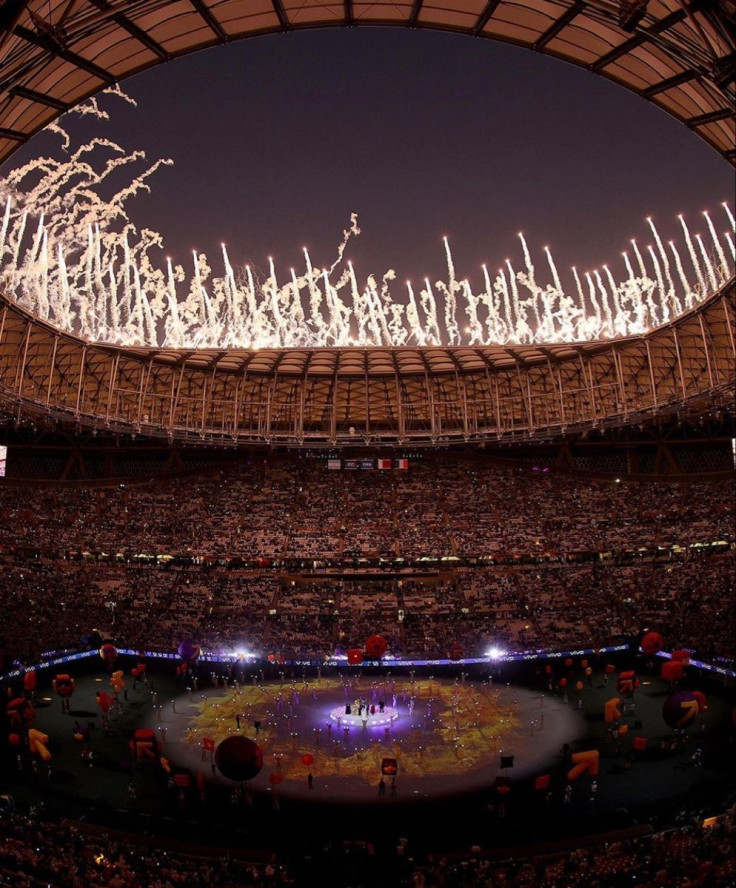Is It Time to Call Soccer , Football? Trump's Joke Rekindles Soccer's Identity Fight in the US
As the 2026 World Cup nears, Americans face a cultural choice: soccer or football?

As the United States prepares to co-host the 2026 FIFA World Cup, Donald Trump's joke about renaming 'soccer' to 'football' has reopened an old cultural divide. With the world watching, Americans face a timely question: can football finally belong, not just globally, but nationally?
Trump's World Cup Appearance Revives an Identity Crisis
At the FIFA Club World Cup final in New Jersey, Chelsea defeated Paris Saint-Germain 3–0. Yet headlines weren't just about the score. Donald Trump appeared on stage, earning boos from fans and confusion from players like Cole Palmer and Reece James.
He then joked:
'I might sign an executive order to call soccer "football" in America, I think we could do that'.
Delivered with a smirk, the remark stirred far more than laughter. It reignited the longstanding tension over the sport's name, identity, and place in American culture.
LMAO 🚨 Trump: “They would call it Football, but I guess we call it soccer. Im not sure that change can be made very easily, but it's great to watch” 🤣 This is why I love Trump 😂 👏.
Why Americans Say 'Soccer' While the World Says 'Football'
The term 'soccer' originated in England in the late 19th century, short for 'association football'. While Britain dropped it decades ago, the United States kept it, mainly to avoid confusion with American football.
Still, that word choice carries cultural weight. For many fans, continuing to say 'soccer' feels like a symbol of the sport's marginalisation.
According to a 2023 Gallup poll:
- Only 7% of U.S. adults listed soccer as their favourite sport.
- 34% preferred American football, with basketball and baseball following.
Yet soccer's numbers are climbing:
- 4.3 million youth aged 6–17 played football in 2023, per Statista.
- MLS attendance averaged 22,111 in 2024, a 12% rise from 2022.
- NBC Sports saw a 15% increase in U.S. Premier League viewership year-on-year.
These figures suggest that the sport is no longer niche, but still not quite mainstream.
The 2026 World Cup Could Be a Turning Point
The 2026 FIFA World Cup will be the largest in history, with 48 teams and 104 matches across 16 cities in the U.S., Canada, and Mexico. The final will take place at MetLife Stadium, the same site of Trump's joke.
According to FIFA:
- The tournament is projected to generate £8.4 billion ($11 billion) in revenue.
- Over 5 million tickets are expected to be sold across North America.
Per reports from the Washington Post, a US task force is already coordinating stadium upgrades, security, and visa logistics to meet international standards.
This moment represents more than a tournament, it is a test of whether football can finally become a permanent part of American sporting culture.
From Joke to Genuine Change: Will Americans Embrace Football?
Trump's joke, though not serious policy, exposed a deeper divide. Many fans want to see the US embrace the global language of 'football', not just for branding, but as a signal of belonging to the world's game.
'I coach kids who love the sport', said Marco Alvarez, a youth coach in New Jersey. 'But they still say soccer because that's what they hear everywhere. It's time we caught up.'
To bridge the gap:
- Use 'football' more widely in youth academies, media, and schools.
- Promote international culture during the 2026 World Cup.
- Deliver a fan experience that resonates with everyday Americans.
A Cultural Shift Begins with Language
Trump's remark may have been made in jest, but it struck a serious chord. As the 2026 World Cup approaches, the US stands at a cultural crossroads. Will Americans continue to see the sport as 'soccer', or embrace it, in name and spirit, as football?
© Copyright IBTimes 2025. All rights reserved.




















